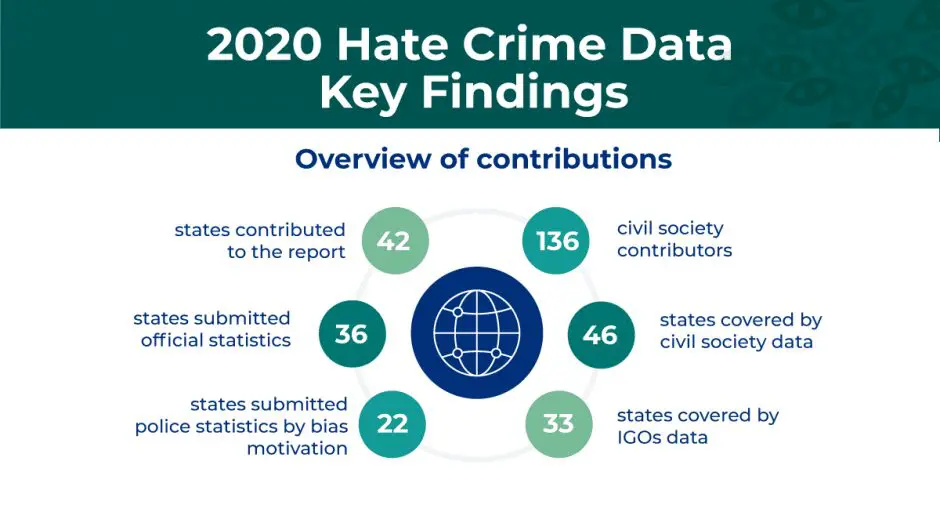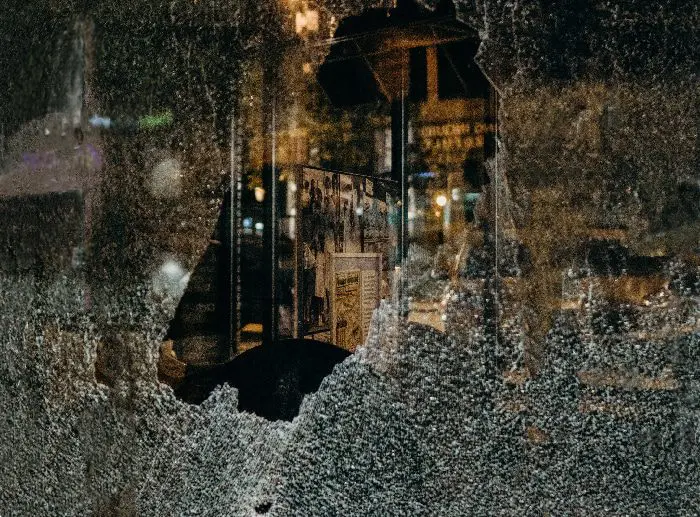Lack of comprehensive approach to hate crimes leaves them invisible and unaddressed, OSCE human rights head says
WARSAW, 15 November 2021 – While many countries across the OSCE are taking greater efforts to combat hate crime, more action needs to be taken to increase knowledge of the true number of hate crimes committed and more done to support victims, said the OSCE Office for Democratic Institutions and Human Rights (ODIHR) on publishing its annual hate crime report ahead of the 2021 International Day for Tolerance.

“Hate crime is a human rights abuse,” said ODIHR Director Matteo Mecacci. “While I congratulate the many states that have undertaken concrete steps to tackle hate crimes, most of them still remain unreported, unrecorded and unprosecuted, leaving victims without support or redress.”
ODIHR’s hate crime data for 2020 show that more countries across the OSCE region are collecting statistics on hate crime, with a total of 42 OSCE states reporting official hate crime data to ODIHR for 2020. However, many of them are based on inadequate or insufficient recording mechanisms that do not identify the bias motivation behind hate crimes, and also fail to distinguish hate crime from other types of crime. Approximately 25 percent of OSCE countries consistently fail to meet their basic commitment to reporting hate crime data to ODIHR.
As well as improving the mechanisms they use to record hate crimes and collect data, countries also need to do more to raise awareness about the special nature of hate crimes. This includes increasing the capacities of criminal justice officials to recognise, record, investigate and prosecute hate crimes effectively.
Hate crimes are particularly abhorrent crimes, sending a message to individuals and indeed to entire communities that they are neither wanted nor welcome, and that threats and violence will never be far away. It is therefore also essential that OSCE countries recognise the overwhelming harm that hate crime causes and take action to ensure that legislation stresses the bias motivation and adequate penalties are imposed on perpetrators.
To ensure that victims are protected, enjoy full access to justice and receive tailored specialist support, countries also need to strengthen their victim support systems and work closely with civil society organisations, which often offer the most specialised and direct support to those who have become the target of hate crime.
ODIHR’s hate crime database is the largest of its kind worldwide. It is updated each year with information from official as well as civil society and other non-governmental sources, and includes data on hate crime legislation, recording, prosecution and sentencing, as well as best practices.
It is important to understand that a lack of official hate crime data does not indicate there is no hate crime, but rather that these crimes are currently not recognised or recorded by law enforcement. ODIHR offers countries across the OSCE region a range of resources and tools to help them support hate crime victims, improve hate crime monitoring and recording practices, and strengthen co-operation with civil society. The full range of ODIHR resources on countering hate crime is available on the website here.
(Source press release)







